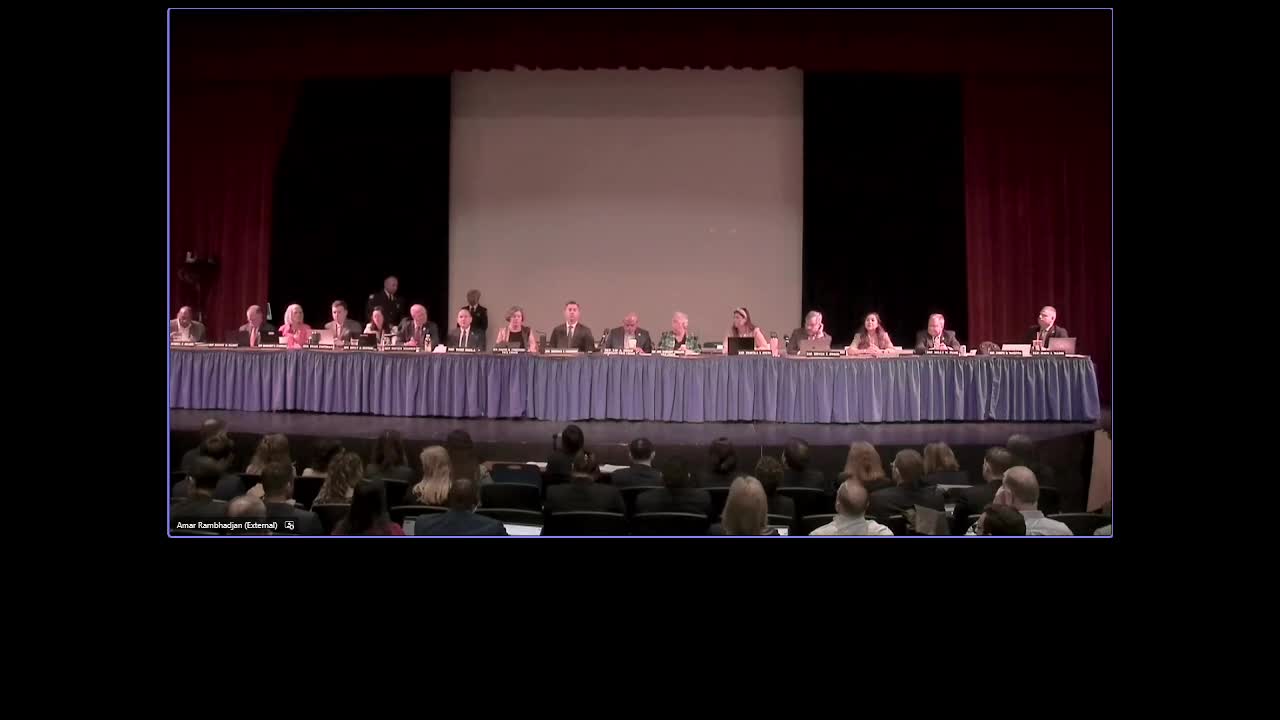EEA tells Ways and Means House 1 focuses on climate resilience, clean energy and environmental justice
Get AI-powered insights, summaries, and transcripts
Subscribe
Summary
Secretary Rebecca Tepper outlined the Executive Office of Energy and Environmental Affairs’ priorities in the governor’s House 1 budget, highlighting investments in coastal and inland resilience, dam and culvert technical assistance, clean energy siting reforms, and environmental justice grants.
Rebecca Tepper, Secretary of the Executive Office of Energy and Environmental Affairs, told the Joint Committee on Ways and Means at a March hearing in Barnstable that the governor’s House 1 budget builds on the administration’s work on climate mitigation, resilience and equity.
Tepper said the budget would fund new technical assistance for dam and culvert owners, seed coastal resilience planning and expand equity-focused grant programs. “This year we’ll be focusing on strengthening our infrastructure and building resilience to climate change,” Tepper said, linking the proposal to recent extreme-weather damage that has affected farms, forests and communities.
Why it matters: The House 1 request packages capital and operating investments the administration says are needed to meet statutory emissions goals and to protect communities from flooding, heat and drought. The proposal also aims to speed clean-energy deployment while adding staff capacity at agencies that carry out water quality, PFAS and conservation work.
Tepper previewed several specific items included in H1: $1,000,000 for dam-safety technical assistance and $2,800,000 for culvert and small-bridge technical assistance to prepare projects at risk of failure; $8,300,000 to support environmental justice and equity staff and programs across the Secretariat; and funding to advance a Blue Carbon Incentive Program to protect and restore salt marshes and sequester carbon. She said the administration expects the Coastal Zone Management Office to release a “Resilient Coast” plan this year and identified a capital investment target of more than $65,000,000 in climate resilience in the governor’s capital plan.
On clean energy, Tepper said House 1 provides $3,600,000 in resources for the Department of Public Utilities and the Department of Energy Resources to implement siting reforms and that the bill creates an office of public participation at the DPU. “The division of Clean Energy Siding and Permitting at DOER will enable critical reforms by streamlining the process for clean energy projects,” she said, stressing the need to accelerate solar, wind and energy-storage deployment in order to meet emission reduction goals.
Emily Reitman, chief executive officer of the Massachusetts Clean Energy Center, described workforce and climate-tech uses for the proposed MassCEC funds. “We have supported actually now almost 7,000 interns hosted by 600 companies across Massachusetts, and these interns are in almost every district,” Reitman said, pointing to internship and training grants and investments in college and vocational programs (examples she cited include EV testing facilities and HVAC labs).
Tepper also highlighted food-security funding and farm supports. She said the new Division of Food Security awarded $24,600,000 in food-system grants and that H1 would propose $40,200,000 for the Massachusetts Emergency Food Assistance Program, which the administration says would translate to more than 38,000,000 meals in fiscal year 2026 to be distributed by four regional food banks.
Fishing and federal rules: Workshop testimony included discussion of federal regulatory uncertainty for commercial fisheries. Tom O’Shea, the department official who answered questions from the committee, said the state will press federal partners and use regional venues to coordinate when possible but that the regulatory pause at the federal level was creating uncertainty for fishing seasons and quota implementation.
What was not decided: The hearing was a budget presentation and question-and-answer session; no committee votes or formal actions were recorded in the transcript on the specific bills or appropriations.
Context and next steps: Tepper said the administration will file an “Energy Innovation and Affordability Bill” to address ratepayer costs and other energy policy matters referenced in the testimony. She closed by offering to take questions from the committee and to work with legislators as the budget goes through the Ways and Means process. The administration also emphasized that some implementation items depend on future rulemaking, federal funding decisions and interagency work.
Tepper concluded by asking to take questions from the committee; she then stood ready to work with legislators on modifications to House 1 as the process continues.
